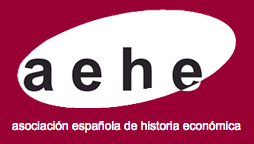Hobbesian morality as a market equilibrium
DOI:
https://doi.org/10.1016/j.ihe.2012.06.003Keywords:
Hobbes, Moral, Market, Equilibrium, B10, B13Abstract
This article is an economic reading of the work of Thomas Hobbes, in an attempt to understand moral behaviors as a result of market equilibriums. The basis is an exchange economy in which the product's price is its opportunity cost. Using Game Theory it is shown how moral behaviors appear before the formation of the State. When the State has been created, strategic behaviors cannot exist and the possibility of perfect competition appears. The General Equilibrium Theory is introduced into this new scenario to show how moral behaviors occur in the hobbesian civil state. As a result, regardless of the presence or absence of the State, moral behaviors in Hobbes constitute market equilibriums motivated by the self desire to trade.Downloads
Downloads
How to Cite
Issue
Section
License
Aquellos autores/as que tengan publicaciones con esta revista, aceptan los términos siguientes
- Los autores/as conservarán sus derechos de autor y garantizarán a la revista el derecho de primera publicación de su obra, el cuál estará simultáneamente sujeto a la Licencia de reconocimiento de Creative Commons Reconocimiento-No comercial-Sin obra derivada 4.0 Internacional que permite a terceros compartir la obra siempre que se indique su autor y su primera publicación esta revista, y no permite hacer uso comercial de la misma ni tampoco obras derivadas.
- Los autores/as podrán adoptar otros acuerdos de licencia no exclusiva de distribución de la versión de la obra publicada (p. ej.: depositarla en un archivo telemático institucional o publicarla en un volumen monográfico) siempre que se indique la publicación inicial en esta revista.
Plagio y fraude científico
La publicación de un trabajo que atente contra los derechos de propiedad intelectual será responsabilidad de los autores/as, que serán los que asuman los conflictos que pudieran tener lugar por razones de derechos de autor. Los conflictos más importantes pueden darse por la comisión de plagios y fraudes científicos.
Se entiende por plagio:
- Presentar el trabajo ajeno como propio.
- Adoptar palabras o ideas de otros autores sin el debido reconocimiento.
- No emplear las comillas u otro formato distintivo en una cita literal.
- Dar información incorrecta sobre la verdadera fuente de una cita.
- El parafraseo de una fuente sin mencionar la fuente.
- El parafraseo abusivo, incluso si se menciona la fuente.
Las prácticas constitutivas de fraude científico son las siguientes:
- Fabricación, falsificación u omisión de datos y plagio.
- Publicación duplicada.
- Conflictos de autoría.





